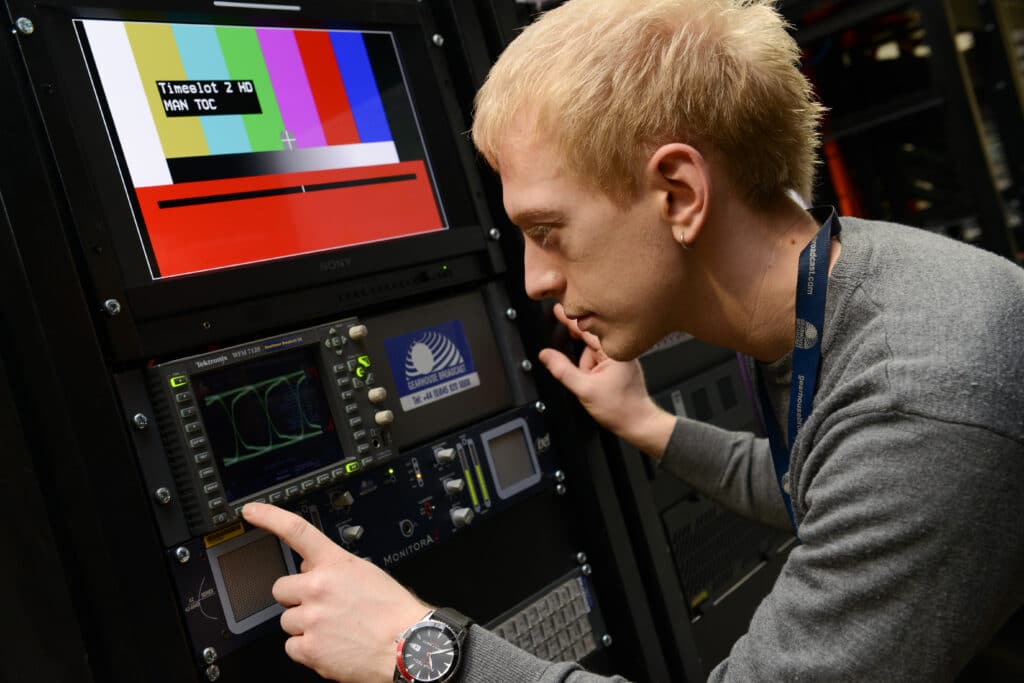As the media industry adjusts to the brave new world that advancements in technology have delivered, questions have been raised over what the future role of a broadcast engineer will be. The rapid rise of OTT services and the increasing use of IP for live production have shifted the emphasis from traditional broadcast engineering to a need for networking and IT expertise.
Some within the industry have resisted change, but the reality is that these new ways of working can help to deliver the best programming for viewers more efficiently and cost effectively. While it’s true that new technologies like IP require a skillset more closely linked to the world of IT, an IT engineer would not be able to replicate the type of work that our engineers carry out on a daily basis without building up years of experience. Even with an IT-centric broadcast workflow, it’s not an easy transition into the nuanced role that these engineers carry out.
Our engineering department features skilled engineers that specialize in audio, video and servers, the last of which has always been more closely linked to the world of IT. These guys are the ones organically adapting to deploying transforming technology, not network specialists coming in to the media industry with new ways of thinking.
By asking the right questions at the recruitment stage and educating people in what the latest technology can do, we’ve been able to build a team with the right mix of knowledge and experience that’s already addressing the challenges of today’s changing industry.
We’re also seeing more universities offer forward-thinking broadcast engineering courses with IT at the center, so new graduates are entering the industry with a comprehensive understanding of the most appropriate technology for the job.
The university to work transition can be challenging for anyone however, and it’s even more complex for broadcast engineering students. To help make this step as seamless as possible, we’ve been partnering with colleges to provide placements to students, so they can get valuable hands-on experience. This is key to ensuring that these students are able to hit the ground running, and means the industry is in safe hands with the next generation of broadcast engineers.
With this new talent, quality training and education of skilled and experienced existing personnel, there’s less need to call in specialist IT professionals who may not have the same level of understanding of the unique pressures a production can throw up. The industry will continue to invest in broadcast engineers that are able to develop the new skillsets required to understand and implement advancements in technology.
Ed recently talked to leading IT publication IDG Connect about why broadcast engineers will always be in demand. Read the full article here.

